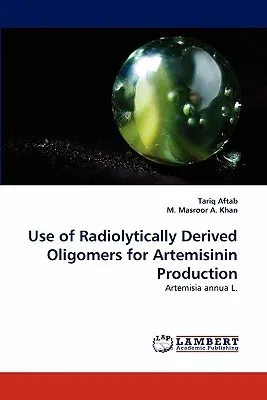Tariq Aftab
(Author)Use of Radiolytically Derived Oligomers for Artemisinin ProductionPaperback, 27 May 2011

Qty
1
Turbo
Ships in 2 - 3 days
In Stock
Free Delivery
Cash on Delivery
15 Days
Free Returns
Secure Checkout
Print Length
72 pages
Language
English
Publisher
LAP Lambert Academic Publishing
Date Published
27 May 2011
ISBN-10
3844383743
ISBN-13
9783844383744
Description
Product Details
Authors:
Book Format:
Paperback
Country of Origin:
US
Date Published:
27 May 2011
Dimensions:
22.86 x
15.24 x
0.43 cm
ISBN-10:
3844383743
ISBN-13:
9783844383744
Language:
English
Location:
Saarbrucken
Pages:
72
Publisher:
Weight:
117.93 gm

